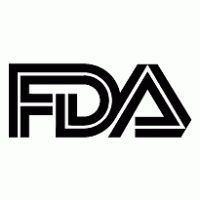FDA Approves First Gene Therapy for Hemophilia B
The BLA was supported by positive data from 54 patients with hemophilia B in the pivotal phase 3 HOPE-B trial.

This article was originally published on CGTLive.
The gene therapy etranacogene dezaparvovec (EtranaDez), now marketed as Hemgenix, has been approved by the FDA for treating adults with hemophilia B who currently use Factor IX prophylaxis therapy, have current or historical life-threatening hemorrhage, or have repeated, serious spontaneous bleeding episodes.
“Gene therapy for hemophilia has been on the horizon for more than 2 decades. Despite advancements in the treatment of hemophilia, the prevention and treatment of bleeding episodes can adversely impact individuals’ quality of life,” Peter Marks, MD, PhD, director, Center for Biologics Evaluation and Research, FDA, said in the release. “Today’s approval provides a new treatment option for patients with hemophilia B and represents important progress in the development of innovative therapies for those experiencing a high burden of disease associated with this form of hemophilia.”
The FDA accepted the biologics license application (BLA) for UniQure and CSL Behring’s Hemgenix for priority review in May 2022. The BLA was supported by positive data from 54 patients with hemophilia B in the pivotal phase 3 HOPE-B trial (NCT03569891).
The HOPE-B trial met its primary endpoint of reduction in annualized bleeding rate (ABR) post-treatment compared with baseline FIX prophylactic therapy, with mean FIX activity of 39.0 IU/dL (standard deviation [SD], 18.7; range, 8.2-97.1) at 6 months post-treatment and 36.9 IU/dL (SD, 21.4; range, 4.5-122.9) at 18 months.3 The 52-week adjusted ABR for all bleeds was reduced by 64% (P = .0002) from 4.19 during the ≥ 6-month lead-in period to 1.51 during months 7-18 and there was an overall 97% reduction in mean unadjusted annualized FIX consumption.
READ MORE: BioMarin Prepares for PDUFA Delay for Val-Rox Hemophilia Gene Therapy
Hemgenix was well-tolerated, with no serious treatment-related adverse events (AEs), although common AEs include liver enzyme elevations, headache, mild infusion-related reactions and flu-like symptoms. No inhibitors to FIX were reported.
“The HOPE-B trial was the first phase 3 study in hemophilia B and has the largest cohort of gene therapy for hemophilia B to report to date. It is also the only trial to include participants with neutralizing antibodies to AAV and this is really unique," investigator Wolfgang Miesbach, MD, PhD, professor and head of coagulation disorders and Comprehensive Care Centre, University Hospital of Frankfurt, Germany, previously told CGTLive.
Hemgenix is an adeno-associated virus gene therapy that delivers the Padua variant of the FIX gene to liver cells via an intravenous infusion. It was previously granted breakthrough therapy designation by the FDA and Priority Medicine (PRIME) regulatory initiative by the EMA. The EMA is currently reviewing a Marketing Authorization Application for EtranaDez in hemophilia B.
Earlier this year, the Institute for Clinical and Economic Review (ICER) concluded that the price of EtranaDez should be capped at $2.9 million.4 They also suggested a cap of $1.9 million for valoctocogene roxaparvovec (val-rox; Roctavian; BioMarin) for hemophilia A.
ICER EtranaDez a B+ score for “moderate certainty” of a small or substantial health benefit and “high certainty” of at least a small net health benefit compared with factor IX prophylaxis. Primary concerns were limited long-term follow-up safety and durability data.